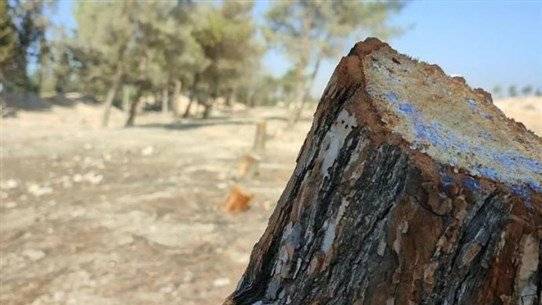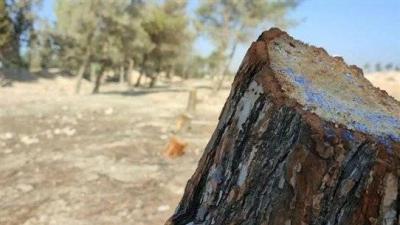In the days of "prosperity," preparing for winter was not easy, which comes with many responsibilities, from school supplies and food provisions to heating. How then can people manage amidst increasing economic and social pressures as they face the onset of the fourth winter amid economic collapse? The price of a gallon of diesel has reached $28, while the price of firewood per ton is around 6 million Lebanese Lira. A simple calculation shows that people need seven barrels of diesel in winter, with the price of a barrel estimated at about $220, totaling approximately $1,500 for the season, while the price for a ton of firewood ranges between $150 and $200 depending on quality. The seasonal need for firewood is estimated at four tons, amounting to around $800, leaving many families living above 500 meters above sea level struggling with the difficult question of how to withstand the winter's chill in light of rising costs they cannot afford.
If winter is a burden for people due to the inability of most families to secure firewood and diesel, it is also detrimental to the forests, which are declining due to logging activities. This market has revived due to investments made by many merchants, some of whom have obtained permits from the Ministry of Agriculture, allowing them to commit large-scale cutting, disregarding only what generates profit under the pretext of securing heating.
### Cutting Allowed... But!
According to Khaled from the village of Mshmash in Akkar, securing firewood for winter begins in July and lasts until September and early October. However, even the price of firewood has become comparable to diesel, factoring in cutting, sawing, and transportation. This has prompted citizens to devise solutions taught to them by years of crisis. "Some have resorted to buying wood waste from sawmills sold in bags (a bag costs 50,000 Lira), in addition to social solidarity and support from charities for the poorest. Many municipalities have also allowed cutting and gathering," he says.
Mohammad Khalil, the mayor of Akkar al-Atika, states that the municipality, rich in forests (about 30 square kilometers), has taken upon itself, in agreement with the residents, to adopt cleaning and thinning measures. Most of Akkar al-Atika's inhabitants, who live at an altitude of 1,200 meters, have become impoverished, as their jobs in the public sector and military earn them salaries worth only about $100. However, despite these control attempts, Khalil emphasizes the difficulty of protecting the forests, noting that "wood merchants come at night to cut down pine, cedar, and oak trees amidst the absence of security and state authority."
### Heating Rationing
Rawiya Jafar from the Al-Ayn region in Bekaa claims that those who heated last year will not be able to do so this year. She confirms that she and her neighbors "have not made any moves to heat, except for what we gather from dry branches from neighboring orchards." Rawiya, a mother of four whose husband works in plumbing, mentions that last season she would turn off the heater from morning until evening, only lighting it when the cold became unbearable, and when the blankets and coverings piled on her did not suffice. She has tried her hardest to extend the life of the diesel canister for as long as possible. Today, she struggles to think about the near future, as "today a barrel of diesel costs over 10 million."
As for Nada Sharif from the town of Yamouné (at an altitude of 1,375 meters above sea level), where most of the residents spend the winter, she asserts that residents "are cutting down from its forests (oak, wild olive, and hawthorn), and some are even cutting their fruit trees like almonds, cherries, and apricots, as well as grapevines because they cannot afford to buy diesel; those without land are forced to buy firewood, and those who cannot afford firewood say 'God will help them.'" Nada points out that most who used to stockpile firewood are now rationing its use, as "many families sit in one room to heat instead of using more than one room."
### Lack of Oversight
In this context, Baalbek Mayor Fouad Ballouk confirms that "the situation is tragic in Baalbek. Some citizens are gathering dry branches, and many are encroaching on forests and state, municipal, and even private lands due to the high prices of diesel, putting what remains of Lebanon's forestry wealth at risk of extinction." There are military patrols, but Ballouk mentions that the area is vast; many operate illegally under the cover of darkness. Consequently, the municipality has requested aid from international organizations and donor countries to at least provide schools with heating supplies, but "no one has shown any willingness; in reality, people are waiting for Hezbollah."
Some residents confirm that army patrols have intercepted several loads of firewood coming from the outskirts, from prohibited trees like gum trees, mulberries, and oaks, seizing their contents with saws. However, they also indicate that even those with permits use them as a pretext for cutting down mature trees in the absence of effective monitoring, particularly in remote areas.
This crisis extends even to the small villages and towns inhabited in winter, such as Rashaya al-Fukhar. Mayor Selim Youssef states, "I am among those who cannot afford to buy diesel. Who can pay 800,000 Lira for a can of diesel!" He notes that the winter population of Rashaya is very small, as farmers and poultry breeders often remain, relying on their livelihoods without cutting down trees, sourcing only from wild trees and shrubs. Thus, they have no other solution.




